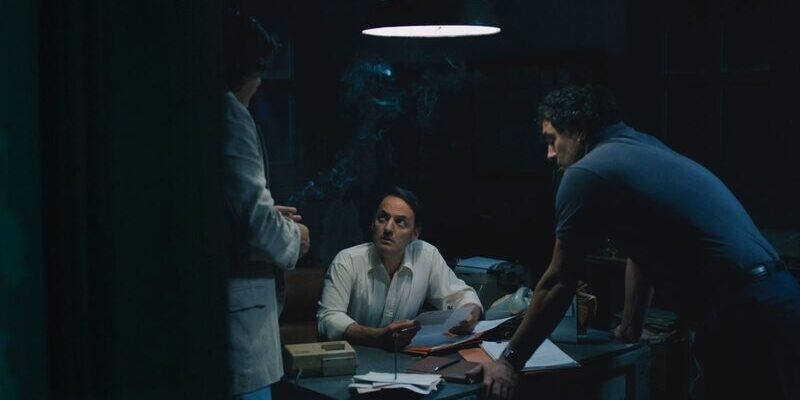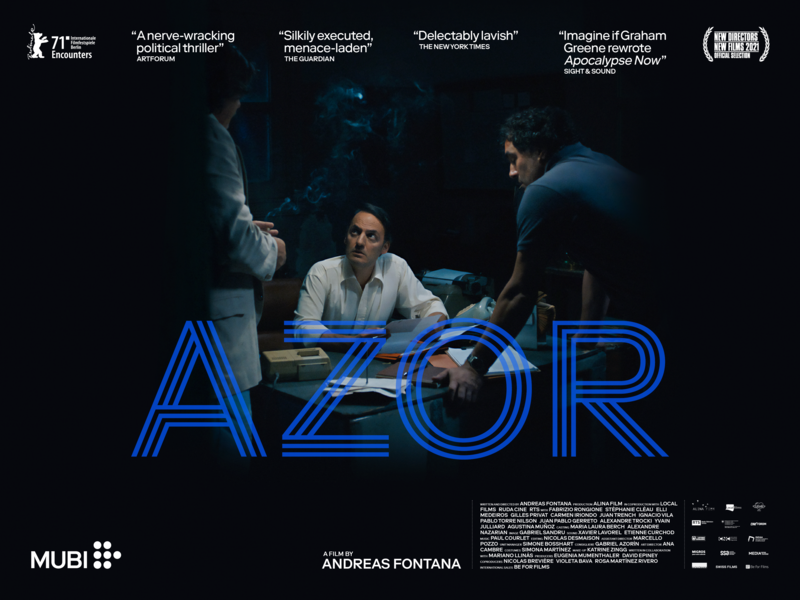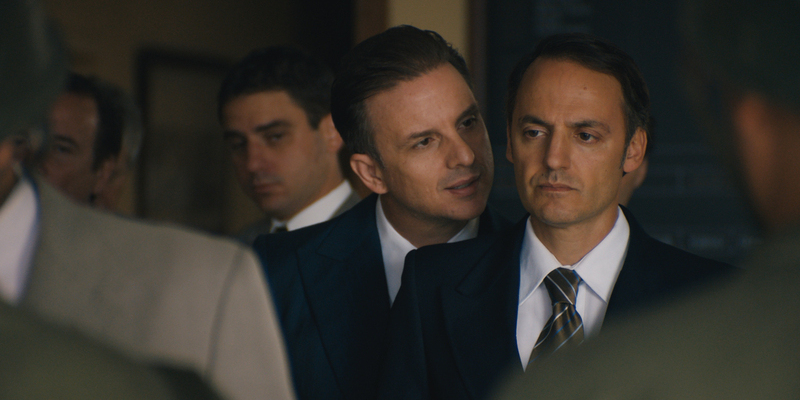
When his business partner mysteriously disappears, a Swiss banker travels
to junta era Buenos Aires.
Review by
Eric Hillis
Directed by: Andreas Fortana
Starring: Fabrizio Rongione, Stephanie Cléau, Elli Medeiros, Alexandre Trocki, Gilles Privat

There's a famous scene in Carol Reed's The Third Man in which
Orson Welles's Harry Lime speaks the following: "In Italy, for 30 years
under the Borgias, they had warfare, terror, murder and bloodshed, but they
produced Michelangelo, Leonardo da Vinci and the Renaissance. In
Switzerland, they had brotherly love; they had five hundred years of
democracy and peace – and what did that produce? The cuckoo clock."
Lime portrays the Swiss as a docile, peaceful lot, but while they may be
known for their neutrality, they're also known for housing the accounts of
some of the greatest despots that ever lived in their infamous banking
system. Indeed, had Swiss banks existed during their time, the Borgias would
likely have banked with such institutions.

Argentinian director Andreas Fortuna's feature debut
Azor takes its title from a term used in the argot of Swiss
bankers. "Azor" means "be quiet" or "don't ask questions," a useful
philosophy when you're dealing with fortunes that may not have been acquired
in the most ethical manner.
The film's protagonist is Swiss banker Yvan (Fabrizio Rongione), who
travels to Buenos Aires with his Lady Macbeth-esque wife Inés (Stéphanie Cléau) when his business partner Keys disappears. It's 1980 and Argentina is
under the rule of a military junta. As such, the question regarding Keys is
whether he has disappeared or been "disappeared."

Keys has left the bank's Argentinian affairs in something of a state, and
it's Yvan's job to reassure his clients that he can straighten things out.
In Buenos Aires he finds two types of clients. There are those in a state of
panic, terrified that the state is set to seize their assets any day now.
And there are those who would seem to profit from the state's actions, a
variety of fat cat capitalists and fat Catholic cardinals.
Fortuna tells his story in a manner as understated as the demeanour of his
Swiss protagonist. Though it might be classified as a thriller, there are
none of the set-pieces you might expect from such a genre designation.
Instead the film consists of a lot of meetings between Yvan and an
increasingly sinister assortment of wealthy old men. There's a sense that
Yvan is descending through various levels of Hell, and losing his stuffy
indifference along the way. The uptight European appears more offended by
the crude language employed by some of his clients than by the immoral means
by which they've become rich. You get the feeling that coming from old money,
Yvan holds the nouveau riche in contempt. Learning of one client's Irish
surname, Yvan decides not to dress too formal, lest he intimidate the man.
Patronising or what?

Given its favouring of character over action, Azor relies
heavily on the strength of its cast. The quiet Rongione, who has something
of Truffaut about him, is a perfect foil for the larger than life
Argentinian character actors he's pitted against. Standouts are Pablo Torre Nilson
as a terrifyingly imposing monsignor getting rich by betting on the outcome
of the Ugandan civil war, and Juan Pablo Geretto as the
sleaziest lawyer since Sean Penn in Carlito's Way.
Azor owes much to Graham Greene and Joseph Conrad. The
mysterious Keys is pitched as a figure somewhere between The Third Man's
Harry Lime and Heart of Darkness's Kurtz. While Yvan begins the film as a
stand-in for the protagonists of those works -Holly Martins and Charles
Marlow - by the time Fortuna sends his antihero on a boat trip up a
foreboding river, it's clear that we've been stealthily sold the origin
story of a Lime/Kurtz figure.


